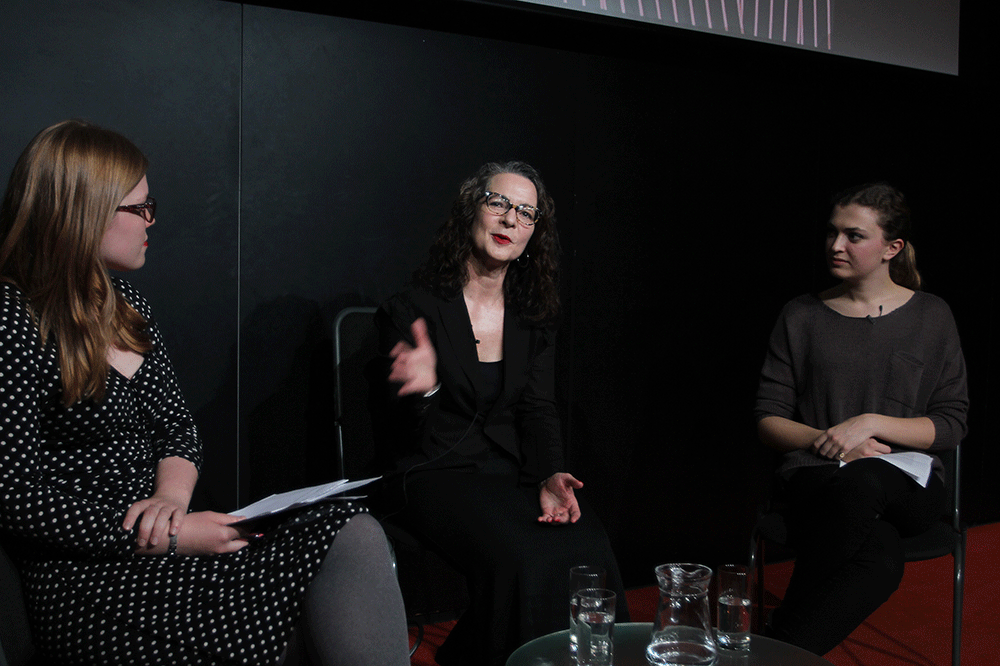Finally an answer for anyone left justifying the legitimacy of their fashion degree (i.e. all of us). After years in development, Professor Frances Corner launched her new book Why Fashion Matters at LCF yesterday.
The principal was joined in conversation with BA (Hons) Fashion Journalism alumna Libby Page (2013) and final-year student Camilla Fisher-Crouch, as well as a host of staff and students at the John Prince’s Street campus to right a range of assumptions still clouding the industry.
“When I started it was even more the case of ‘oh London College of Fashion, that’s for airheads and it’s not very serious’,” Frances began. “It really irritated me; it doesn’t take much to work out how important fashion is to us economically and personally.”
With the discussion ranging from feminism and diversity to identity and sustainability, any belief that fashion is little more than shoes and handbags was quickly dispelled. But, while always interested in politics, culture and social responsibility, Frances admits it wasn’t until joining the college in 2005 that she came to fully understand the power of fashion.
Thoughts and conversations she had with students and staff partly inspired the book. A wide-ranging background in education covering subjects including history, English and religious studies also nurtured the ability to place fashion in its wider context.
Readers will find such entries as ‘The Optically Enhanced White Shirt’ don’t just cover the cultural symbolisms of the garment but the environmental cost of its production method. Why Fashion Matters doesn’t shy away from the industry’s darker side either, it’s meant to encourage change as well as celebration.
Yet strangely for a fashion book, there isn’t a single image. “From the very beginning it was always about the ideas and the arguments around fashion,” Frances explained. “It was much more about letting people have their own images.” Such interactivity runs throughout with thought-provoking questions interspersed between the 101 bitesize and accessible chapters.
“I loved it,” Camilla said. “It’s the handbook I wanted 2 years ago when I told my parents I was doing fashion journalism.”
Reflective of the book, yesterday’s event also gave us an ever-greater insight into our Head of College.
How she feels about diversity – “as a college we’ve got to make sure we’re part of that debate and the vanguard of it”; the future of the fashion show, “it won’t go but there will be more questioning about what is the purpose of it” and even her greatest fashion faux pas, “a really terrible green corduroy skirt, even in the 80s it didn’t work.”
But as the fashion industry’s next generation, how can we contribute to making fashion matter? “It’s about working out what your own philosophy is and building arguments around it,” she said. “Understanding what the implications are and not being frightened to ask questions”.
Why Fashion Matters certainly encourages us to ask questions as well as seek answers.
- Words by Fi Anderson, BA (Hons) Fashion Journalism
- Images by Elisabeth Bogo



